
If you’re grilling, smoking, or using your slow cooker, a delicious marinade is an excellent way to take your dish to the next level. Whether you’re trying to satisfy the masses, or just yourself, pairing the right flavors with the right meat is crucial. Also, marinades are not just for meats; they can also flavor up veggies and meat substitutes.
We tracked down some of the best marinade recipes you can use with beef, chicken, pork, seafood, veggies, and a few all-purpose marinades that go great with anything. Also, stick around to the end, where we’ll go over some common misconceptions about marinades and things to avoid in the marination process.
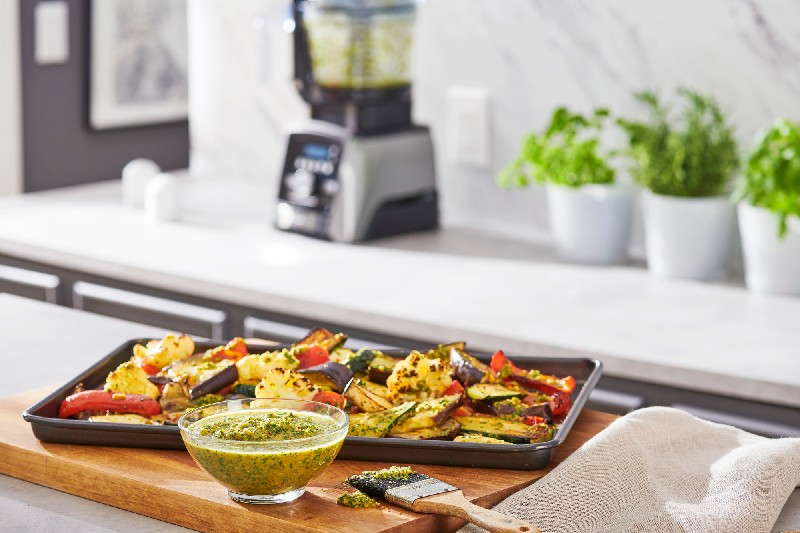
All-purpose marinades
Vitamix multipurpose marinade
(From Vitamix)
It would make sense that the leader in blending technology would mix up a great marinade recipe. The chefs at Vitamix have provided a delicious marinade that is great on anything and is great to have on hand at all times.
Ingredients:
- 1 medium yellow onion, peeled, quartered
- 6 garlic cloves, peeled
- 1 medium orange, peeled, halved
- 1 tablespoon lime zest, about 1 lime
- 1 bunch Italian flat-leaf parsley, stems trimmed
- 1/2 cup grapeseed oil
- 1/2 cup soy sauce
- 1/2 teaspoon ground black pepper
- 1/2 teaspoon crushed red pepper flakes
- 1/2 teaspoon dried thyme
Method:
- Combine all ingredients in a blender and blend until incorporated.
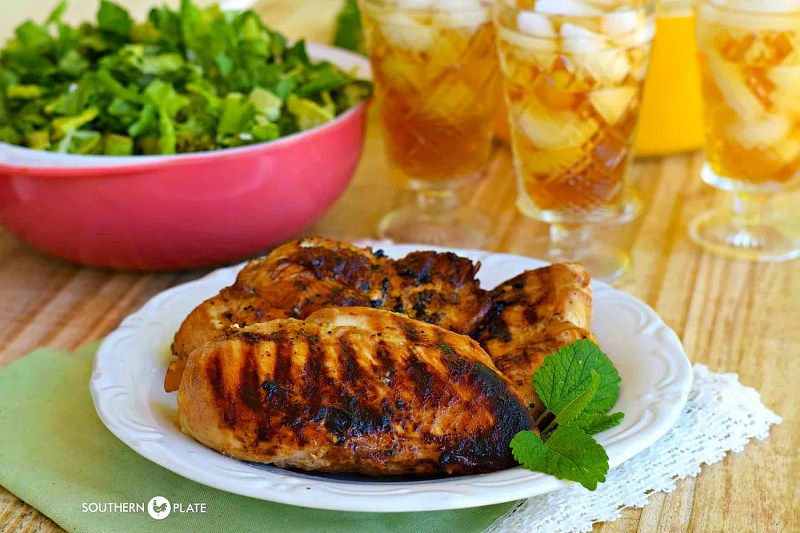
Southern Plate’s all-purpose marinade
(From Southern Plate)
If you’re a fan of pre-made marinades and sauces like Dale’s Sauce, you can make your own version at home with less sodium, thanks to this recipe from the Southern Plate. They like using this marinade with chicken, steak, burgers, and veggies. If you want to add a touch of smokey flavor, add a dash of liquid smoke.
Ingredients:
- 1/2 teaspoon garlic powder
- 2 tablespoons cider vinegar
- 1 tablespoon ground ginger
- 1 cup soy
- 1 cup water
- 1/2 teaspoon liquid smoke (optional)
Method:
- Mix all ingredients thoroughly and store it in an airtight jar or meal prep container.
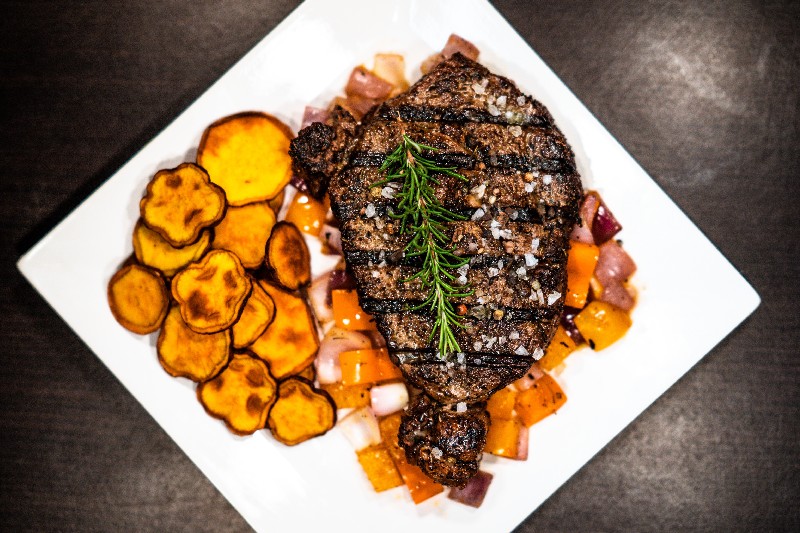
Beef marinades
Cocoa-café steak marinade
(Courtesy of Nadia Chariff, Registered Dietitian & Health Advisor, Coffeeble)
When cooking with beef, adding coffee to a rub is a great way to get a darker sear and enhance the flavor. This recipe from Coffeeble is a marinade adaptation of one of their favorite rub recipes. This steak marinade recipe provides a well-balanced combination of umami, sweetness, and spice.
Ingredients:
- 1 cup strong brewed coffee
- 1/2 ounce unsweetened dark chocolate, chopped
- 2 tablespoons packed dark brown sugar
- 1 teaspoon sea salt
- 1 teaspoon adobo sauce (I use the juice in a can of adobo peppers)
- 1/4-1/2 teaspoon cayenne pepper
- Pinch of ground nutmeg
- Pinch of ground all-spice
Method:
- Combine all ingredients in a microwave-safe bowl (we know this sounds hacky, but otherwise, you’ll need a double boiler, which is complicated).
- Microwave for 45 seconds.
- Stir & microwave for another 30 seconds.
- Repeat for 15-20 seconds as needed.
- Use your discretion with the timing here, as microwaves vary. Your goal is to melt & combine, not cook or burn.
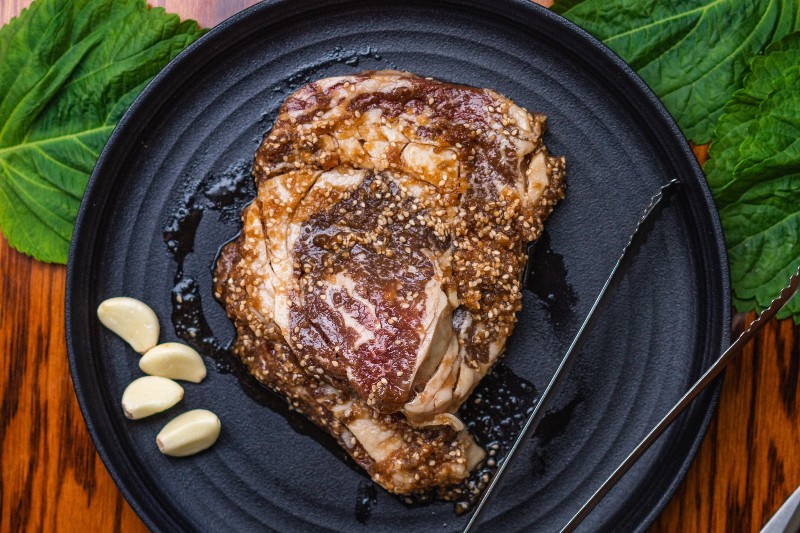
Sweet garlic soy marinade
(By Chef Andrew Lim, Perilla)
This is the recipe Chef Lim uses for his bulgogi at his Korean American Fare restaurant, Perilla, in Chicago’s West Loop neighborhood. There are few beef marinades more delicious than bulgogi, and this from-scratch version will be your best friend for grilling or pan-frying any sort of steak.
Ingredients:
- 2 cups soy sauce or tamari (gluten-free soy)
- 2 cups sake or soju
- 3 cups sugar
- 2 cups pineapple juice (orange juice works as well)
- 1 cup garlic
- 2 tablespoons fish sauce (sub in salt if no fish sauce)
- 2 Tablespoons Salt
- 1 tablespoon garlic powder
Method:
- Put all ingredients into a 4 qt or 1-gallon pot.
- Bring up to the boil, once up, lower heat to simmer.
- Simmer for 15 minutes or so, until the marinade is slightly more viscous than soy sauce, almost like a very light and runny syrup.
- Strain out the liquid and set aside.
- Blend the remaining solids in a food processor or blender, add in some of the set-aside liquid to help with the process.
- Once blended, add all liquid with blended solids and stir to mix thoroughly.
- Taste and adjust to your liking, add more water or pineapple juice if too salty, more soy or salt if too bland.
- Set aside until room temperature before you marinate anything, do not marinate meat while the liquid is warm.
- Once cool, you can use it for any vegetable or meat, leave just barely covered for at least 4 hours, then you’re ready to eat!

Chicken marinades
Jerk chicken marinade
(By Executive Chef David Stein, Nick’s Riverside Grill)
The “jerk” cooking style originates from traditional Afro-Caribbean cooking methods of adding holes in meat so flavor could permeate throughout. It evolved to more complex rubs and marinades through the years, but the delicious Caribbean flavor profile remains. This chicken marinade recipe from Chef Stein at Nick’s Riverside Grill in DC delivers a bouquet of complex flavors intended for chicken. Still, it can be enjoyed with any meat or veggie of your choice.
Ingredients:
- 1 cup soy sauce
- 1/3 cup lime juice
- 1/2 cup ginger
- 3 teaspoons allspice
- 2.5 ounces thyme
- 3 habanero peppers
- 1 tablespoon salt
- 3 tablespoons black pepper
- 3 ounces garlic
- 2 cup green onions
- 1/2 cup brown sugar
- Juice of one orange
- 1 tablespoon red pepper flakes
- 1/2 teaspoon cinnamon
- 1 cup olive oil
Method:
- Combine all ingredients in a blender, then puree. Store in the refrigerator until used.

Lemongrass chili marinade
(By Chef Cesar Zapata, Phuc Yea)
Although crafted for chicken, this is another versatile marinade that can be used in any dish. From chef Cesar Zapata of Phuc Yea in Miami, this authentic Thai-style marinade has sweetness, spice, and everything nice. This marinade lends itself to any type of cooking, whether you’re pan-searing, roasting, or grilling.
Ingredients:
- 6 tablespoons finely minced garlic
- 3 teasponns ground black pepper
- 1/2 cup fish sauce
- 3 tablespoons brown sugar
- 8 lemongrass stalks, trimmed
- 3 tablespoons sesame oil
- 1 cup chili Sauce
- 1/2 cup hoisin sauce
- 1/4 cup Thai bird chilies, minced
Method:
- Place all ingredients in a food processor and process until everything is well mixed.
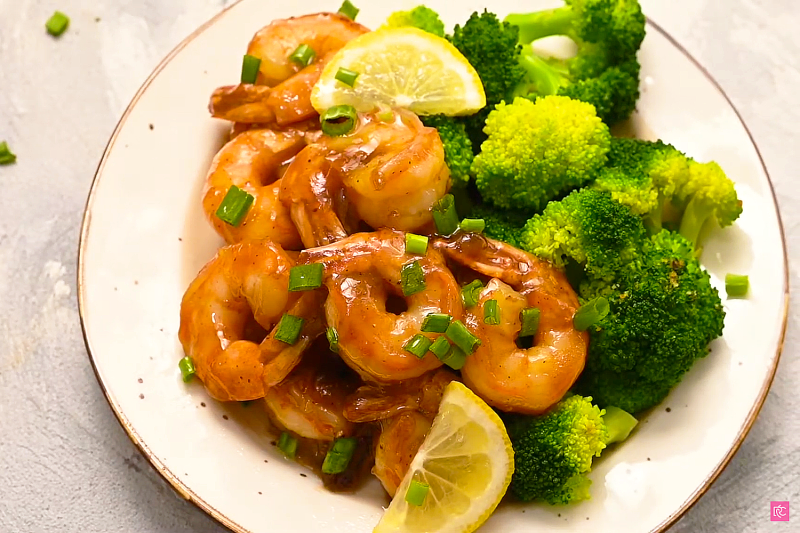
Seafood marinades
Honey butter garlic marinade
(By Alyssa Rivers, The Recipe Critic)
This simple yet delicious recipe is from the food blog The Recipe Critic and their recipe for Sticky Honey Butter Garlic Shrimp. Although designed for shrimp, this low-acidity marinade can be great for any seafood. The recipe calls for incorporating the butter during the pan in the cooking process. So, if you’re planning on grilling or roasting, try adding pads of butter on top of the fish right after it’s done and letting it incorporate that way.
Ingredients:
- 1/2 cup honey
- 1/4 cup soy sauce
- 3 cloves garlic minced
- 1 small lemon juice from lemon
- 2 tablespoons butter
Method:
- Whisk all ingredients except butter in a bowl and marinate seafood for 30 minutes.
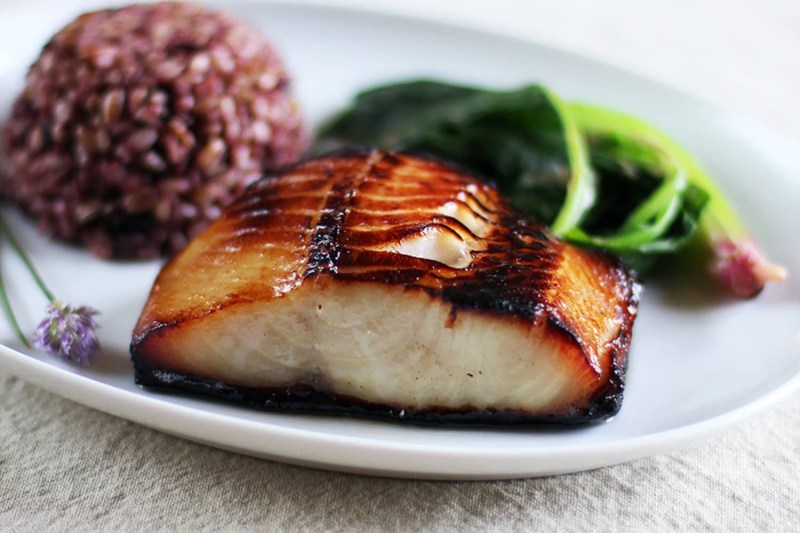
Miso marinade
(By Kathryn Hill, The Kitchn)
We found this recipe on the popular food website, The Kitchn, which got it from the globally acclaimed sushi and seafood restaurant Nobu. The fish that Nobu uses is black cod, but it can pair well with any mild, flaky fish. This marinade recipe has four simple ingredients, which balance perfectly with the fish. Two of the ingredients (sake and mirin) contain acidic alcohol, and that’s why the recipe calls for boiling out the alcohol first.
Ingredients:
- 1/4 cup sake
- 1/4 cup mirin
- 1/4 cup white miso paste
- 3 tablespoons granulated sugar
Method:
- Bring the sake and mirin to a boil in a medium saucepan over high heat.
- Boil for 20 seconds to evaporate the alcohol.
- Turn the heat down to low, add the miso paste, and whisk.
- When the miso has dissolved completely, turn the heat up to high again and add the sugar, whisking constantly to ensure that the sugar doesn’t burn on the bottom of the pan.
- Remove from heat once the sugar is fully dissolved.
- Cool to room temperature.
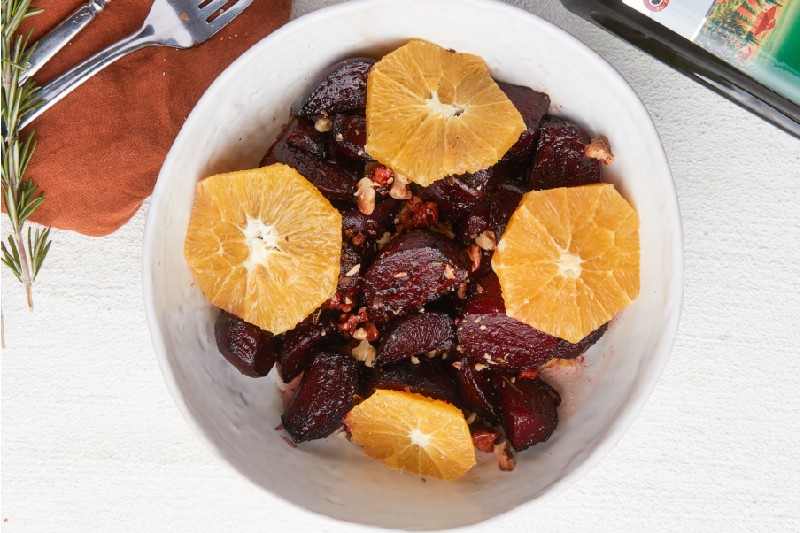
Veggie marinades
Sweet balsamic rosemary marinade
(From Pompeian Olive Oil )
This marinade recipe is adapted from Pompeian’s balsamic roasted beets recipe. Although they use this recipe for roasting beets, it adds a sweet, herbaceous flavor to any fresh vegetable dish.
Ingredients:
- 1tablespoon Pompeian Smooth Extra Virgin Olive Oil
- 1/2 teaspoon kosher salt
- 1 tablespoon chopped rosemary
- Fresh cracked black pepper
- 1/2 cup balsamic vinegar
- 1 tablespoon brown sugar
Method:
- In a bowl, toss the Pompeian Smooth Extra Virgin Olive Oil, salt, rosemary, and black pepper.
- Bring balsamic vinegar and brown sugar to a gentle boil in a saucepan, then reduce heat to medium-low.
- Simmer, stirring occasionally, until the mixture thickens after about 10 minutes. Remove from heat let cool to room temp.
- Whisk balsamic reduction together with the olive oil mixture.
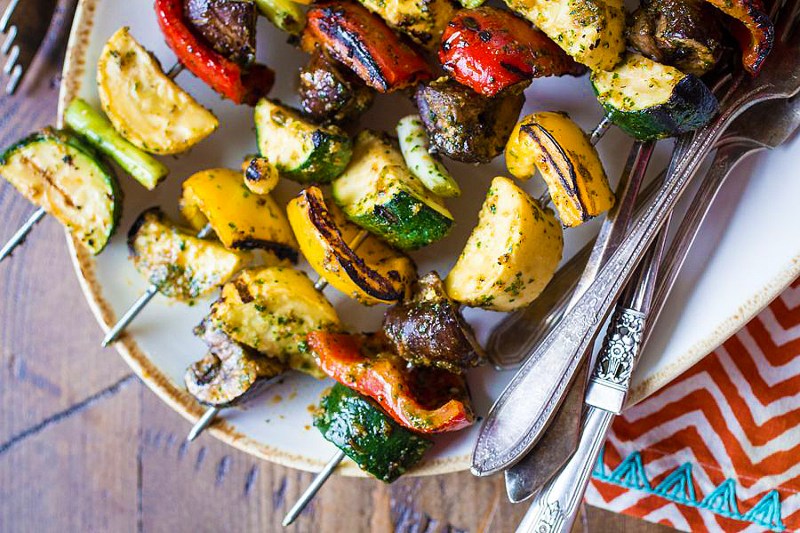
Spicy Thai veggie marinade
(By Linda, Wanderlust Kitchen)
This marinade is taken from the Wanderlust Kitchen’s spicy Thai grilled veggie skewers recipe. If there’s one thing that veggies need, it’s fish sauce and a whole lot of garlic. This marinade will add a great spicy, umami flavor to all your favorite vegetables.
Ingredients:
- 1 1/2 cups packed cilantro leaves
- 8 cloves garlic, peeled
- 2 tablespoons fish sauce (sub soy for vegan BBQ skewers)
- 1 tablespoon water
- 1 teaspoon freshly ground black pepper
- 1 tablespoon chili garlic sauce
- 1/3 cup vegetable oil
Method:
- Place the cilantro, garlic, fish sauce, water, pepper, chili-garlic sauce in the bowl of a food processor; pulse to form a paste.
- With the processor running, pour the oil through the lid spout in a slow stream.
- Use a spatula to scrape the marinade out of the processor and pour it over the vegetables.
- Toss well, cover, and refrigerate for 1 hour.
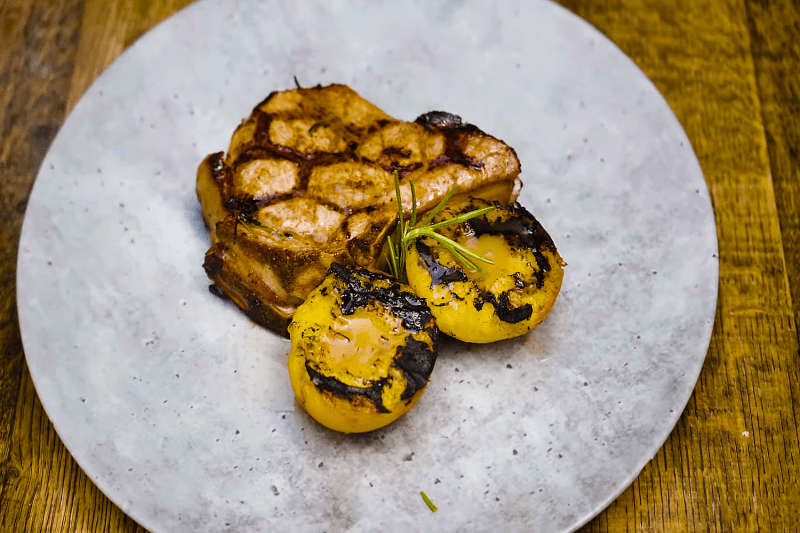
Pork marinades
Bourbon pork marinade
(From Oklahoma Joe’s Smokers)
This recipe is courtesy of Oklahoma Joe’s grilled bourbon marinated pork chops with peaches recipe. The reduced bourbon combined with brown sugar and Worcestershire sauce provides a sweet, savory, and oaky flavor that perfectly complements pork’s natural flavor.
Ingredients:
- 1 cup bourbon reduced by half
- 1/2 cup brown sugar
- 1/4 cup soy sauce
- 1 tablespoon Worcestershire sauce
- 1/2 tablespoon chopped rosemary
- 1 teaspoon ground black pepper
Method:
- Whisk or blend ingredients together until fully incorporated.
- Marinate pork for up to four hours.

Maple Dijon marinade
(By Jim Mumford, Jim Cooks Good Food)
Jim Cooks Good Food is a food blog dedicated to real-life cooking, and this marinade is so tasty you’ll be questioning if this is real life. Jim actually uses this marinade in a chicken recipe but says it’s just as good with pork. The sweetness and savoriness of the honey mustard play excellent against the sharp brininess of the capers. Be sure to make a little extra of this to dip anything and everything in.
Ingredients:
- 1/3 cup maple syrup (agave or honey a fine swap)
- 1/4 cup Dijon mustard
- 1 tablespoon capers
- 1 tablespoon caper brine
- 1/4 cup vinegar (apple cider preferred, but use what you have)
- 2 tablespoons olive oil
- 1 teaspoon salt
- 1/2 teaspoon black pepper
- 1/2 teaspoon garlic powder
Method:
- Whisk or blend all ingredients together until fully incorporated.
- Marinate for up to four hours.
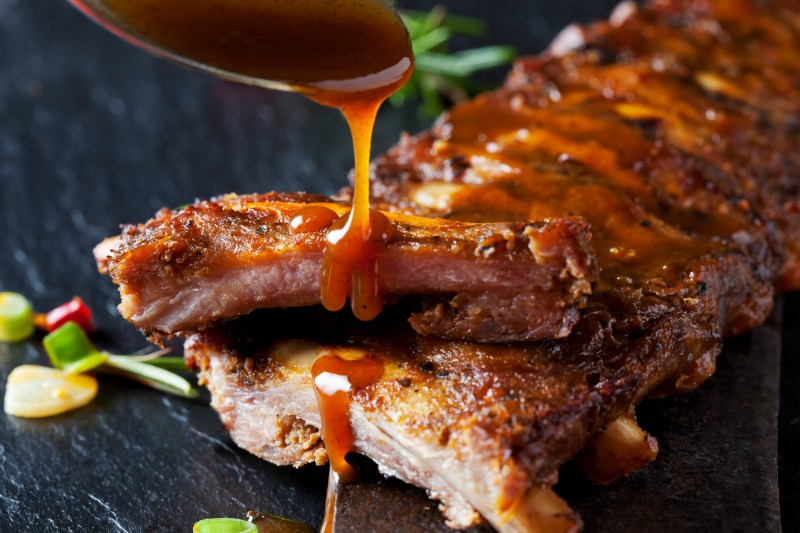
Clearing up some marinade misconceptions
First, many people believe that the longer you marinate something, the better and more flavor-infused it will be. However, this is simply not true. Marinades provide superficial flavor, meaning that they hardly penetrate the surface. If you don’t believe us, maybe you’ll believe Cooks Illustrated, some of the top cooking science experts. They did a test where they cooked beef short ribs in red wine and measured how deeply it penetrated the meat. Even after 18 hours, the wine didn’t go more than 1 mm into the flesh. This is why, depending on the meat, 30 minutes to 4 hours is plenty of time for a soak.
Another myth is that acidity tenderizes the meat by breaking muscle fibers and connective tissue. However, having been proven that liquid cannot soak deeply into meat, the acidity just makes the outer layer of meat mushy — especially when soaked for long periods. Because of this, you want to use acidic components (citrus, vinegar, wine, yogurt, etc.) of marinades sparingly. Seafood is especially sensitive to acid, and it cooks the flesh; think ceviche.
Speaking of seafood, when marinating fish, you’ll want to use an oil-based marinade devoid of water. Fish naturally contain a lot of water; this is why you want to pat them dry to get that crispy outside and moist inside. Soaking seafood in a marinade with water as a base will cause the fish to absorb it, creating steam in the cooking process and leaving your fish soggy. Flakey fish like cod or salmon only need a 30-minute marinade, while firmer fish like swordfish or tuna can go an hour.
All this is not to say that food doesn’t benefit from being marinated. Meat benefits the most from a marinade when it’s a thinner, smaller cut. Even if you use a marinade on a thick cut of pork or steak, the flavor will still reside on the outer portion, complementing the meat’s inner, natural flavors.
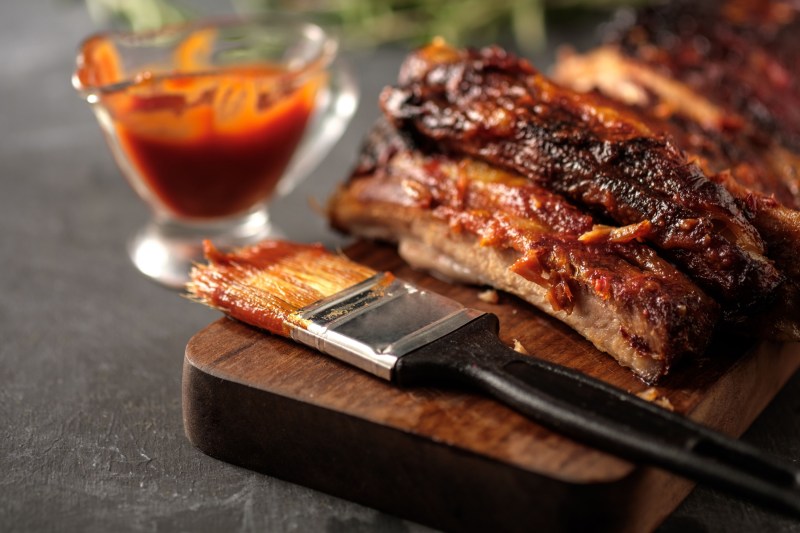
Can marinade be used as a sauce?
This is a good question, but in most cases, you shouldn’t use marinade as a sauce directly. While the flavors may seem enticing, using uncooked marinade directly on your cooked food can be unsafe because of harmful bacteria, as raw meat and fish can harbor bacteria like E. coli and Salmonella. During marinating, these bacteria can transfer to the marinade. And even if you’ve cooked your meat, using uncooked marinade on it can reintroduce bacteria if the meat wasn’t cooked to a safe internal temperature.



